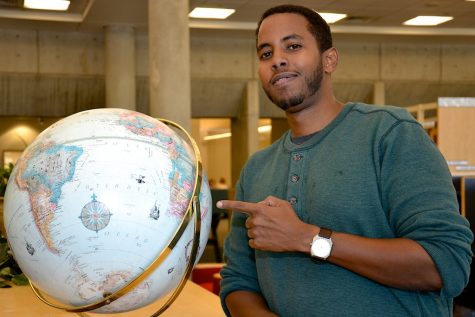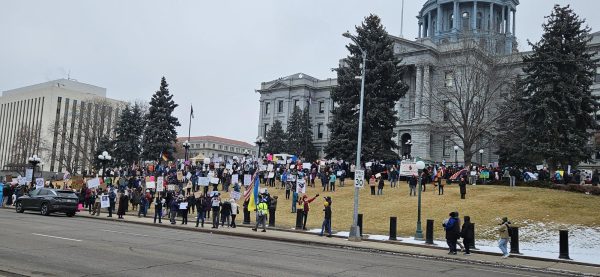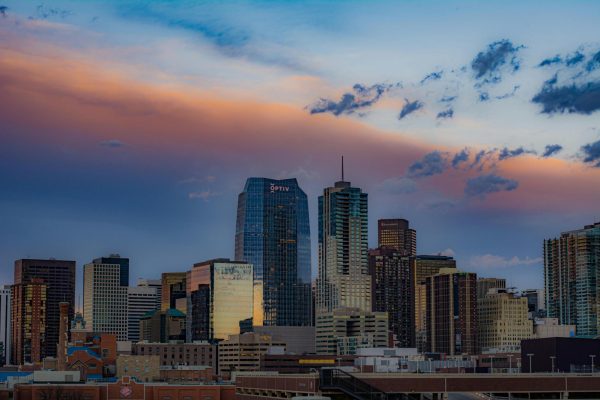Changing the Gender Guard
By the beginning of next year, for the first time in modern history, the four most important and influential positions in the world could be held by women. Germany, the U.S., the U.K., and the United Nations could all be run by women, relegating the era of men dominating the global political scene to the history books.
It begins with Angela Merkel, the Chancellor of Germany, who has held her country’s top post for over a decade, successfully nudging her nation into the European Union spotlight – further away from its notoriously dark past.

Earlier this year, Theresa May, daughter of a vicar and a former Member of Parliament, was nominated as incumbent Prime Minister of the United Kingdom after former Prime Minister David Cameron lost his seat in the embarrassing “Brexit” defeat.

And although analysts around the world predict the US Presidential Elections to be a close race, recent polls indicate Hillary Clinton still enjoying a slight margin over her contender, Donald J. Trump.
Now the current run for the next Secretary General of the United Nations – to be decided next month — is also highly contested. Tensions are running high and the elections are even being described as a ‘redox war’, with Russia and the US each aggressively pushing their candidates forward. Both of these finalists are women: Argentina’s Foreign Minister Susana Malcorra, America’s top draw, and Russia’s pick, Irina Bokova of Bulgaria, Head of the world renowned Culture and Education Agency, UNESCO. This is quite significant bearing in mind that the United Nations, known as a champion of human rights and gender equality, has never once had a woman at its helm.

However, the election process for this highly sought after seat – which has been described by critics as part beauty pageant, part grand jury and part college admission essay, is anything but transparent and straight-forward.
Early voting through secret straw polls kicks off the proceedings, giving the 15 members of the Security Council a chance to acquaint themselves with the viable candidates before marking ‘encourage’, ‘discourage’ or ‘no opinion’ next to their names on a card. Eventually, a candidate must win the approval of all the Security Council Members, which then submits the chosen name to the General Assembly for final review. But there is a catch: five of the 15 Security Council Members, namely, the U.S., Russia, China, U.K. and France, all enjoy veto power, allowing them to nullify any majority held decision that isn’t in their best interest. This leads to the possibility of the more deserving candidate being passed over for the one who draws the least objections.
So how are the leadership values of women seen today and how do the policies of women in high office differ from those of their male counterparts?
According to a 2014 survey conducted by the Pew Research Center, both men and women have the same potential to be good leaders; the difference lies in their ‘essential traits.’ Both genders agreed that they viewed women as more honest, organized and compassionate than men, who, in turn, were considered to be more decisive, goal-driven and ambitious than women. Research has further shown that when it comes to dealing with social issues like improving quality of life, women have repeatedly proven to have better and more sustained results, whereas issues like crime and national security are still regarded as male domains.
Still, female heads of state aren’t a novelty. In fact, during the 1980’s, a good number of countries were run by women. Who can forget Margaret Thatcher, Prime Minister of Great Britain, nicknamed ‘the Iron Lady’ for her enduring resolution. Or the brave Benazir Bhutto of Pakistan, who at 35 was the world’s youngest Head of State and the first female Head of State of a Muslim nation. Another strong woman from that time was First Lady Imelda Marcos of the Philippines, who effectively ruled the island nation after her husband suffered a debilitating heart attack.

And yet the fact remains, all these women came to power during a time when their nations were undergoing periods of unrest and turmoil. The Winter of Discontent for example, which ushered in the Iron Lady, refers to the cold months between 1978 and 1979 when the UK was enduring high levels of unemployment resulting in nationwide labor union strikes. Meanwhile across the globe, Pakistan was being suffocating by a military regime that imposed martial law on its people for nearly eleven years before Ms. Bhutto came to power.

The question therefore beckons: is it only during times of unrest and turmoil that the world increasingly turns to women for more peaceful solutions? Studies have shown that women leaders tend to adopt a more leftist approach to politics, usually adopting policies that gear towards cohesion, compromise and negotiation – with a few exceptions, such as Marie Le Penn, the Head of France’s national-conservative party, Front National. Female heads are also known to be wearier of capitalism and the free market, depending less on it for solutions, and instead supporting initiatives that help set up healthcare and welfare programs for their communities. And looking at global affairs today, it is hard to deny that the world is living through a very violent and uncertain period. From the international war in Syria, now entering its sixth year, dispersing millions of refugees across the world, to the soaring death toll of young people in inner cities across the United States because of senseless gun murders.
But regardless what the reasons may be, 2017 is primed to usher in a new era of politics no longer completely dominated by men.
The winds of change are blowing, soon to give the old adage, ‘It’s a Man’s World,’ a whole new meaning.

Born and raised in Vienna, my roots are in East Africa and I call the world my home. My insatiable interest in history and geography led me to pursue a political science degree at Ohio University. Shortly after graduating, I began...








Scott Bright • Sep 21, 2016 at 3:45 pm
Great article.
However, I wonder why it’s considered so huge that we have four potential women in world leader positions, compared to the other 190-odd countries on this planet, which are all ruled by men?
It may have to do with going from a whopping whole one (with Merkel) to a potential four, which is a 400% increase. But it’s not enough. I think the influence of the four women against the 190-odd men might be a bit. . . overstated.
Not to say these women aren’t capable or powerful, because obviously they are, but politics in the world and in most countries is still dominantly and overwhelmingly male.
Rashid Mohamed • Sep 29, 2016 at 8:51 pm
Thanks for your comment, Scott. In 2015, there were 18 female leaders around the world, including 12 heads of government and 11 heads of states, according to the United Nations data.
So yes, global politics is predominantly run by men, however the number of world female leaders emerging is consistently on the rise.
But perhaps what’s significant is exactly the fact that although men still overwhelmingly dominate world government, it will be four women conductors driving this global political train. In addition, the fifth most influential post (in my opinion) Chief of the International Monetary Fund, is also run by a lady, namely Cristine Lagarde. With the UN and half of the Bretton Woods Institutions controlled by women, I think we can certainly expect to see changes in the status quo.
Scott Bright • Oct 1, 2016 at 12:23 am
Wow, I did not know that. And when you articulate it that way, it does seem to look as if the political status quo is changing in regards to the women at the helm.
Maybe I’m just cynical in that a majority are still run by men and that it’s been that way for too long in my opinion.
Thank you for that great response.